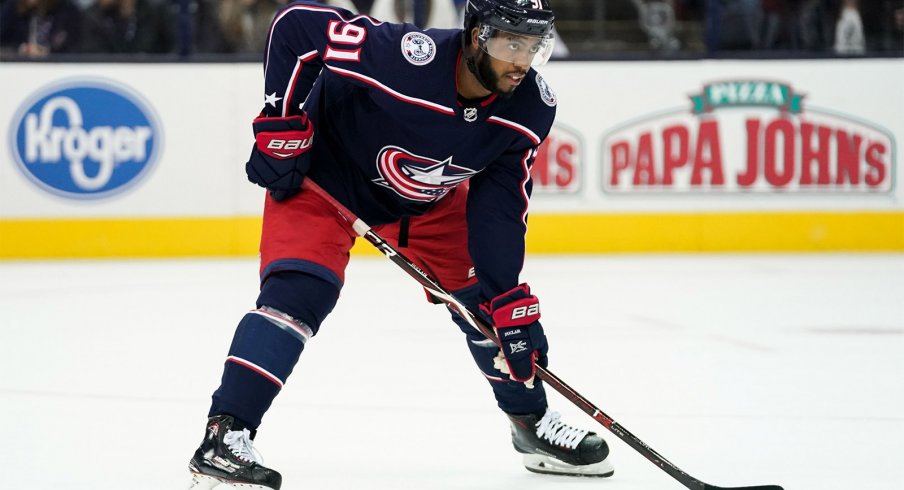Anthony Duclair’s signing for the league-minimum $650,000 this past offseason was seen as a low-risk, high-reward signing for the Columbus Blue Jackets, and so far, his seven goals show that he’s already delivered on some of that potential.
Scoring alone won’t earn Duclair a go-to role on this team, though, as coach John Tortorella is looking for more from the young winger. Duclair certainly isn’t getting singled out by his coach, though, as Zach Werenski has also seen his role diminish as he works on getting back to his game.
Tortorella was clear that he’s not afraid to make those decisions if it’s clear that they’re beneficial in both the short term for the team and the long-term for the player.
"We have to make the call,” Tortorella told the media yesterday. "It’s not to grind them, it’s to try to help them.”
Tortorella was clear that Duclair isn’t in the proverbial doghouse. He was also clear that he’s looking for more out of the player. But despite how many fans perceive Tortorella’s gruff and fiery demeanor, he’s been clear that he’s not putting the burden on the player.
"The onus falls on us, we certainly aren’t going to put him in the spots I think in the future we can right now,” said Tortorella. "This is not a doghouse thing.”
Duclair wasn’t tendered a contract by the Chicago Blackhawks last offseason, and at just 23 years old is already on his fourth NHL club. Tortorella doesn’t care about Duclair’s past – only on setting clear expectations and helping the player grow.
Mood: Watching this ridiculous Anthony Duclair goal on loop. #CBJ pic.twitter.com/433IGfrtDp
— 1st Ohio Battery (@1stOhioBattery) October 18, 2018
"I’ve explained to Duke that I’m not sure what’s happened prior, but I’m on his side, I am,” Tortorella said. "I see the potential in him as a player, but nothing’s going to be given. Quite honestly, I’m still trying to figure him out and I’m sure he’s trying to do the same to me.”
So, what is Tortorella looking for from Duclair? To put it simply, a higher compete level – but Tortorella is getting philosophical in this case and asking himself how exactly to define that.
"I think we’re trying to get the definition of compete understood. That’s part of a process, that’s not doghouse material,” he said. “That’s making sure that they understand what our definition is as coaches.
"Quite honestly, I think it’s different from team to team, you can say ‘compete, compete’ but what is competing?” he continued. “All coaches have different definitions with that, we have to make sure we have our definition right there front and center.”
That definition doesn’t appear to be set in stone – but Tortorella mentioned that he saw from the whole team what he wants from Duclair in the Blue Jackets’ last game against the Dallas Stars. It was a hard-fought game with equal scoring chances, little room to move the puck and a good fight – one that, in Tortorella’s words, wasn’t “a fight where you tap one another on the ass and say ‘good job’” – resulting in a win.
In a team sport like hockey, with complex schemes and plenty of unpredictable bounces, it’s tough to say that any individual player is routinely ‘in control’ of much in the game. In Tortorella’s eyes, though, that compete level is the one thing that they can control – and the first thing he looks at when evaluating players.
"That’s one thing an athlete can control is how hard you play. That isn’t a science, that isn’t an analytic, that isn’t something someone can take away from you, that’s within you,” Tortorella said. "That’s an easy one to evaluate to me."
He’ll continue to evaluate that in Duclair – while being transparent and open – in the pursuit of helping the young winger reach his potential.
